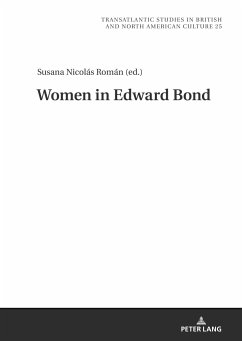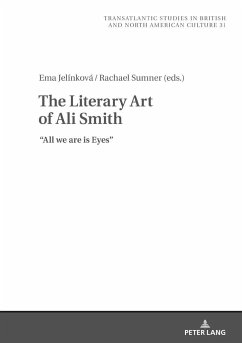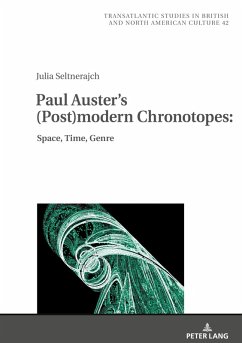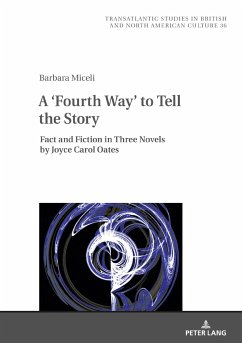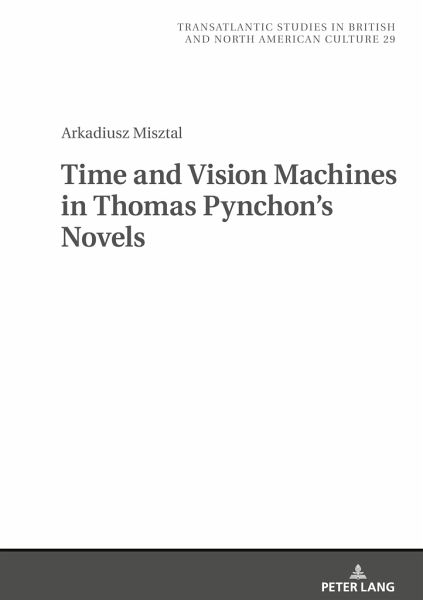
Time and Vision Machines in Thomas Pynchon's Novels
Versandkostenfrei!
Versandfertig in 6-10 Tagen
60,45 €
inkl. MwSt.

PAYBACK Punkte
0 °P sammeln!
This book studies the complex relations between time and visual technologies in the oeuvre of Thomas Pynchon within the general framework of the culture and politics of time. It argues that notwithstanding a postmodern tendency towards the spatialization of experience, temporality constitutes a major concern in Pynchon's novels, which explore the problematic of time-experience and temporal representation against the background of the contemporary technosphere and its temporal regimes. By examining photography, cinema, television, computers, and the Internet, this book puts Pynchon's engagement...
This book studies the complex relations between time and visual technologies in the oeuvre of Thomas Pynchon within the general framework of the culture and politics of time. It argues that notwithstanding a postmodern tendency towards the spatialization of experience, temporality constitutes a major concern in Pynchon's novels, which explore the problematic of time-experience and temporal representation against the background of the contemporary technosphere and its temporal regimes. By examining photography, cinema, television, computers, and the Internet, this book puts Pynchon's engagement with visual technologies into a perspective that elucidates their workings as time machines in relation to both experientiality and materiality.





